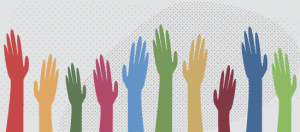Event Date:
Event Contact:
Joanne Nowak, Blum Center Academic Coordinator (joanne.nowak@ucsb.edu)
On Thursday, September 5th the UCSB Blum Center is hosting a workshop for UC graduate students who have been awarded short-term fellowships for research that addresses a wide range of issues at the intersections of poverty, inequality, and democracy. The aim of the workshop is to provide fellows with an opportunity to share research plans and work in progress, foster interdisciplinary conversations, and build community among students and faculty working on the themes of poverty, inequality and democracy at UCSB and across the UC system.
Participants will contribute to discussions that draw out interdisciplinary perspectives on cross-cutting concepts, themes, and research practices, raise questions and share insights about common research issues and dilemmas, and explore the connections between research, policy, and action as well as possibilities for engaging more broadly public conversations.
* * * * * * * *
2019 Blum Graduate Fellows in Poverty, Inequality and Democracy
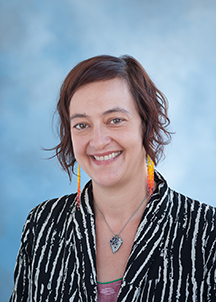
Lorraine Affourtit, History of Art & Visual Culture, UC Santa Cruz, "The Art of Assembly: Visualizing Decolonial Democracy in the Oaxaca Commune"
My project is a case study approach to a social movement in southern Mexico through the lens of its visual culture initiatives. I argue that the visual culture of the Oaxaca Commune prefigures a model of decolonial democracy, bringing together Indigenous communal lifeways and autonomous governance with participatory democratic politics at the state level. As the struggle for more socially just democratic options in the face of the neoliberal crises of poverty and inequality becomes global in scale, my research suggests that it is urgent to look to the creative practices of minoritized citizens, which prefigure emancipatory futures of a democracy 'to come'.
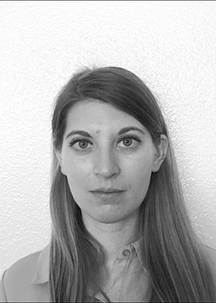
Sari Blakeley, Geography, UC Santa Barbara, "Why Didn't I Get a Payout? Understanding Basis Risk in Index Insurance"
My research project focuses on how farmers in West Africa make decisions on whether to purchase insurance for drought risk management under different educational tutorials under insurance. The goal of this research is to better understand how farmers ingest information to make decisions, so that the educational tutorials can effecdtively get as much information to them as possible.
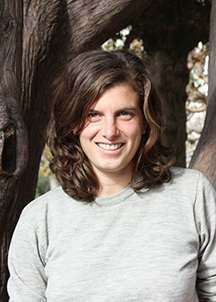
Emily Eisner, Economics, UC Berkeley, "Jobs Guarantee Programs: The Case of the Works Project Administration"
This research project investigates the outcomes of workers who were employed by the Works Project Administration during the New Deal. Specifically, it focuses on the long run employment and economic well-being of program participants. To do this, our research team linked individuals across the US Population Census from 1920-1940 and plan to link this data to WPA personnel records that are currently held at the US National Archives. Once combining these novel datasets, we will analyze the causal impact of participation in the WPA on job attainment 5-10 years after participation. We also plan to look at the impact of the program on mortality using Social Security records. Ultimately, the goal of this work is to provide evidence for whether a Jobs Guarantee program would be a suitable policy alongside unemployment insurance and job loss due to automation and the changing nature of work. This is joint work with Ingrid Haegele, Nina Roussille, and Ben Scuderi (all at UC Berkeley, Economics).
Isabel Garcia Valdivia, Sociology, UC Berkeley, "The Effects of Legal Status on Older Mexican Migrants in the US and Mexico"
Based on a mixed-method approach, my dissertation explores the effects of legal status for Mexican older adult immigrants in the U.S. and return migrants to Mexico. In particular, this research focuses on the factors that facilitate or hinder how older adult immigrants access economic, family, medical and psychological support and the strategies they deploy as they age. I investigate how these differ across countries and by legal status.

Beth Ann Hart, Sociology, UC Davis, "On the Verge: College Life in an Era of Precarity"
My dissertation draws on 120 longitudinal interviews, collected with a group of 30 community college students over two years, to understand how students' nonacademic lives (their work, family and financial obligations) affect their ability to complete college. I draw on theoretical frameworks about precarity, poverty, and emerging adulthood to understand how community college students respond to instability and volatility as they move through college.
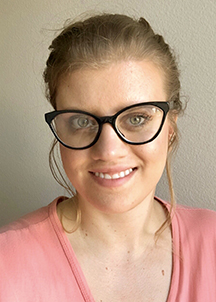
Fernanda Jahn Verri, Urban Planning, UC Los Angeles, "Legalized Displacement: Analysing the Eviction Apparatus in Brazil"
My research focuses on what I call legalized displacement in Brazil, namely land dispossession practices that are not only a direct result of the financialization of housing but of a much broader discriminating process in which the courts are playing a major role. Drawing from Porto Alegre, a city with a participatory planning tradition, my goal is to understand the logics informing evictions today in Brazil, including how they are being supported through policy and legal systems.
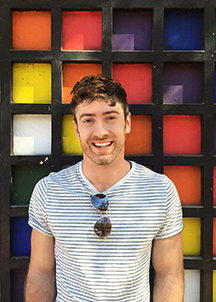
Joseph Klein, Anthropology, UC Santa Cruz, "Tracing Circuits of Credit and Debt in Indonesian Marine Product Economies"
My dissertation project is an ethnographic study of the live coral industry which connects marine product collectors along Indonesia's rural littoral with aquarium keepers in the global north. Drawing from extensive research in Indonesia, I explore the interconnections between economic and environmental change in coastal communities for whom coral reefs become sites of both fortune and risk.
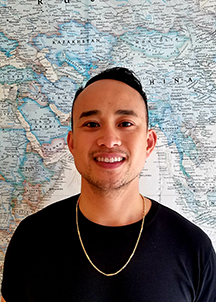
Andrew Le, Sociology, UC Los Angeles, "When All the Fish are Dead: An Environmental Disaster, Poverty, and the Rise of Undocumented Migration"
I study international migration, political and environmental sociology, religion, organizations, and comparative ethnicity. In my dissertation, I ask how does the relationship between the migrants, brokers, and the state influence why, where, and how individuals migrate? To answer this question, I focus on the labor exportation of Vietnamese persons across the globe. Through ethnography and interviews conducted in Vietnamese, I study how these social actors bring migratory options into being. Part of my dissertation explores the relationship between an environmental disaster and the rise undocumented migration in Vietnam.
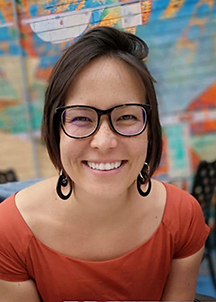
Angela Okune, Anthropology, UC Irvine, "An Ethnography of Civic Data Capacity in Nairobi"
Through a comparative study of Nairobi-based research organizations working in and on technology and development, my project examines negotiations over privacy, quality, ownership, and ethical responsibility enacted by the processes of opening up qualitative research data. This research will analyze changing ideas about data sharing amongst social scientists in Africa, responding both to increasing concern that scientific knowledge is not benefiting the communities studied and to growing, global interest in the possible benefits of “open data.”
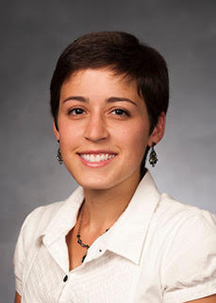
Belinda Ramirez, Anthropology, UC San Diego, "Growing Community, Cultivating Space: Race and Politics in the San Diego-Tijuana Agriculture Movement"
I am studying the values and motivations behind those engaged in the urban agriculture and food justice movements in San Diego and Tijuana. I will investigate why, how, and under what circumstances people sustain the values and hopeful visions of these movements so that we can better understand the transformative power of urban agriculture within a global industrialized agricultural system.
Rachel Wells, Social Welfare, UC Los Angeles, "The Role of Community-based Organizations in Challenging Narratives of Poverty"
Through an ethnography of two community-based organizations (CBOs), my dissertation examines ideas of poverty within community organizing and service delivery. My research focuses on frontline work that combines organizing and service delivery and whether community-based organizations can offer an alternative conceptualization of poverty through these interactions.

